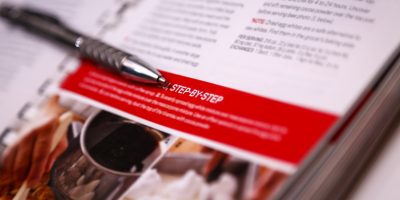“Everyone has to practice, even the pros.” — Wynton Marsalis.
Practicing is universal. Just as a professional musician needs to practice, an athlete needs to train, and a student needs to study. Marsalis obviously knows something about practice. This classical and jazz trumpet player has earned nine Grammy Awards and a Pulitzer Prize for Music, and he’s also a musical educator. His set of practice tips (in bold) for musical students (interpreted here with more school-focused application) works equally well for students of all disciplines.
1. Seek instruction
Whenever you’re perplexed, ask a teacher for assistance to re-explain or clarify a concept or an assignment. If that doesn’t give you what you need, tutoring is always an option to enrich and enhance your understanding of the subject and the goal.
2. Make a schedule to set and track your goals
Know what you need to accomplish and create a study schedule to keep track of what you have to do to meet your goals. With the typical list of long-term assignments and daily homework drills, it’s too easy to lose track of what’s going on without a calendar that includes realistic progress goals and project deadlines.
3. Concentrate while practicing
Studying goes better when your head is the right space. Sometimes it can help to warm-up, just as professional pitcher may warm up his shoulder, a student can warm up before fully engaging by scanning a chapter first, reviewing yesterday’s notes, or playing a quick computer game that involves drill and practice of an math concept. Pay attention to what you’re doing, because the quality of the time spent studying is more important than the length, in fact, many short sessions, with short breaks between, may increase your recall better than a few long, drawn out study sessions.
5. Relax and practice slowly
Being relaxed will make it easier to remember what one’s been assigned to learn and will allow for actual enjoyment of studying. Much has been written about being in the flow or the zone to maximize learning. The more relaxed, the more accepting of the task at hand, the greater likelihood of being in the zone while studying!
6. Practice what you can’t play
Spend your study time wisely by concentrating on what you don’t know or haven’t quite mastered. Review what you do know but make sure you spend the most time of new or difficult material.
7. Always play with maximum expression
Bring your best game to your studying, otherwise you won’t get better at studying itself or the subject matter you’re trying to learn.
8. Think for yourself
Critical thinking skills are of paramount importance. You have the right to interpret a text as you see fit, to critique the value of a homework assignment, or to realize that an editor had missed a grammatical error in an article. Thinking for yourself can be one of the most empowering practice tips.
9. Be optimistic and don’t be too hard on yourself
Positive self-talk is essential — you will get through this assignment, you can do the work, you’re not stupid. If you don’t believe in yourself, who will? Try to develop a realistic sense of your own abilities so that you’re not criticizing yourself needlessly. Don’t listen to those nagging voices in your head that try to drag you down.
10. Look for connections between music and other things
Never hesitate to connect what you’re studying with your own experiences and knowledge. Making such associations deepens your experience and enriches understanding of a topic. This is great training for unleashing creative juices, because innovation often involves discovering previously unrealized connections.





